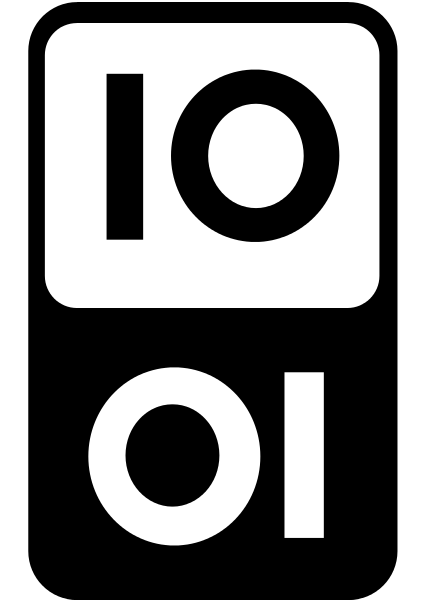Research Integrity and ethics: definitions
In 2016, Pierre Corvol's report to the Secretary of State for Higher Education and Research set out the following definitions to distinguish between research integrity and research ethics:
A clear distinction must be made between research integrity, i. e. the rules that govern the practice of research, and research ethics, which deals more broadly with the major issues raised by scientific progress and its societal impacts. (...)
Research integrity is the upright and honest conduct that must prevail in all research. Consubstantial to any research activity, it is on integrity that knowledge is based. Research integrity is not a question of morals, but it is based on universal moral principles according to which it is wrong "to lie, to steal...". The quality and reliability of scientific production depend on it. It is on this basis that the knowledge-based society is based in order to, in a word, "believe in science". As much as ethical issues are debated, so much research integrity is not debatable. It is self-respecting, it is a code of professional conduct that must not be violated. It is imperative in science, as are professional codes of ethics for doctors and lawyers.
Open science: a trigger for research integrity
The openness and accessibility of all research outputs are the fundamental principles of honest research. This is also mentioned in the European Code of Conduct for Research Integrity:
Objectivity requires facts capable of proof, and transparency in the handling of data. Researchers should be independent and impartial and communication with other researchers and with the public should be open and honest.
The Scholarly communication unit can be called upon by researchers in order to get support for the open access dissemination of their publications and also for assistance in writing a Data Management Plan and choosing the best repository to share their data.
 Everything you need to know about research data and more particularly the legal background and technical questions
Everything you need to know about research data and more particularly the legal background and technical questions- the publication of negative results (including the existence of journals dedicated to biology Negative results, Journal of Negative Results),
- pre-registration (pre-declare your hypotheses and research protocol; see in particular this site),
- Open peer-review (make public the names of reviewers, reports, exchanges, etc...).
The Research Integrity officer for the École des Ponts
In a 2017 circular (n° 2017-040) addressed to all higher education and research institutions on research integrity policy, the Ministry in charge of Research requested a series of practical measures, including the appointment of a research integrity officer. His missions are as follows:
- ensuring the promotion and respect of the principles of Charte nationale de déontologie des métiers de la recherche, signed in 2019 by the École des Ponts,
- ensuring that mechanisms and procedures are in place to prevent misconduct, train researchers and deal with breaches of research integrity,
- investigating cases of breaches of research integrity and advising the head of the institution,
- ensuring representation before the OFIS (French Office of Scientific Integrity) within the network of officers.
If necessary, the referent shall receive a complaint or allegation of non-compliance in a non-anonymous manner and shall investigate it confidentially with the possible help of experts. The head of the school is informed.
Frédérique Bordignon (frederique.bordignon@enpc.fr) is the research integrity officer for École nationale des ponts et chaussées; for all research actors, she is the first person to contact both to ask a question about research integrity and to report a violation of the rules.
Training and information
The decree of 25 May 2016 establishing the national framework for training and the procedures leading to the award of the national doctoral diploma states in its article 3 that doctoral schools "shall ensure that each doctoral student receives training in research ethics and research integrity".
The Scholarly communication unit and the research integrity officer can come to the laboratories to talk about the subject, but for those who want a more complete training, there are 2 high-quality Moocs:
 MOOC "Research integrity in research professions" (University of Bordeaux)
MOOC "Research integrity in research professions" (University of Bordeaux) MOOC "Research Ethics" (University of Lyon, complementary to MOOC on research integrity at the University of Bordeaux)
MOOC "Research Ethics" (University of Lyon, complementary to MOOC on research integrity at the University of Bordeaux) MOOC "Responsible Conduct of Research" (Utrecht University)
MOOC "Responsible Conduct of Research" (Utrecht University)For these 2 MOOCs, the participants can receive a follow-up certificate.
Questionable research practices
Questionable research practices can take many forms and have a more or less significant impact on the progress of science.
 To be read: Anthony R. Artino; Erik W. Driessen; Lauren A. Maggio. 2018. Ethical Shades of Gray: International Frequency of Scientific Misconduct and Questionable Research Practices in Health Professions Education. Academic Medicine.
To be read: Anthony R. Artino; Erik W. Driessen; Lauren A. Maggio. 2018. Ethical Shades of Gray: International Frequency of Scientific Misconduct and Questionable Research Practices in Health Professions Education. Academic Medicine.DOI : 10.1097/ACM.0000000000002412
Small breaches, high frequency
Add an author who has done nothing or agree to be an author when nothing has been done, cite unread articles or to please reviewers or to increase their citations, "salami slicing" (spread study results over more papers), consider an unexpected conclusion as a starting point, lack rigour in data storage and protection, use students as subjects of study and not report it.
Serious breaches, low frequency
Ask to be an author when you have done nothing, manipulate data until nonsignificant results become significant (p-hacking), pretend not to see that a colleague's data is biased, falsely claim to have used a method/technique, deliberately fail to report limitations, manipulate/delete/make data/figures, modify results, use "information" obtained as a reviewer for research, plagiarize/self-plagiarize, refuse to share data with collaborators, fail to cite (correctly) sources.



